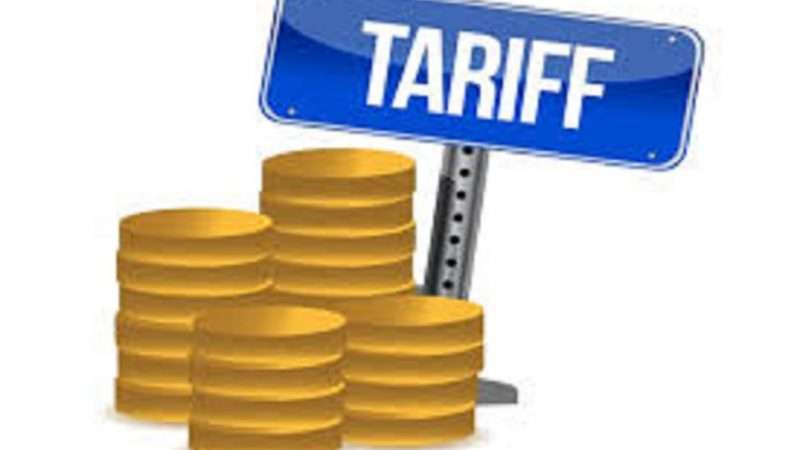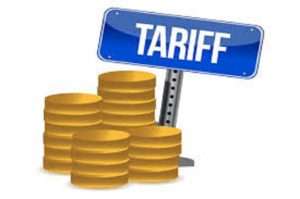

Donald Trump's plan to impose massive 10% or greater tariffs on all imported goods is a centerpiece of his potential second term policy agenda. If implemented, it would cause enormous harm to the US economy, raise prices on many goods, and seriously damage relations with our allies. The potential damage is likely to be enormous. Trump's tariff plan is even more dangerous than it might be otherwise, because he can probably implement it without any new congressional authorization.
As Trump himself puts it, "I don't need Congress [to impose tariffs]…. I'll have the right to impose them myself, if they don't." If he's right, that differentiates it from many other harmful policy ideas put forward by presidential candidates, that do require new legislation, which would often be difficult or impossible to push through a closely divided Congress. That's true of Kamala Harris's awful rent control and price control plans, for example (she has recently scaled back the price control proposal).
Is Trump right to claim the president has unilateral authority to start a massive trade war? Under current legislation and judicial precedent, the answer is likely yes. My Cato Institute colleagues Clark Packard and Scott Lincicome have published a valuable new analysis of this crucial issue. Here's the summary of their findings:
Article I, Section 8 of the US Constitution grants Congress the power to "lay and collect Taxes, Duties, Imposts and Excises," and to regulate commerce with foreign countries. From the founding of the republic through the early 1930s, Congress set tariff rates through legislative revisions to the US tariff schedule. Low tariffs were initially imposed to raise revenue for the federal government, but tariffs became a tool to protect domestic producers from foreign competition. Throughout this period, tariff rates fluctuated with the makeup of Congress, while the president was largely a bit player in setting international trade policy.
This approach to US tariffs changed dramatically following the disastrous Trade Act of 1930, better known as the Smoot-Hawley Tariff Act after its sponsors Rep. Willis C. Hawley (R‑OR) and Sen. Reed Smoot (R‑UT). The act was signed by President Herbert Hoover in June 1930 over the objection of virtually every prominent economist at the time; it became the largest tariff hike in US history, inflicted serious damage to the US economy and international relations, and vividly demonstrated the shortcomings (and outright corruption) of congressional tariff-setting.1
In response, Congress delegated large amounts of its international economic authority to the executive branch in 1934 and through subsequent laws, under the prevailing assumption that the president was far less likely than Congress to be influenced by parochial interests and rent-seeking lobbyists—and thus far less likely to repeat Smoot-Hawley. For about 85 years, this bipartisan approach proved successful: major tariff hikes and trade wars were avoided and international trade flourished.
That changed with the 2016 election of Donald J. Trump.
Upon taking office, President Trump used the powers granted to him by Congress to take a series of unilateral actions that radically upended US international economic policy. Most prominently, Trump imposed national security tariffs on imported steel and aluminum from virtually every country—including longstanding allies—and hiked tariffs on more than half of all goods from China, which was at that time the United States' largest import supplier.
Although the Biden administration promised to turn the page on its predecessor's unilateralism, it instead repeatedly defended the Trump administration's tariffs—and the broad authority Congress delegated to the executive branch—in court. President Biden also maintained most of the tariffs in original or modified form. The administration has even increased some of the China tariffs, citing the same laws and regulations that Trump abused in 2018.
In his 2024 presidential campaign, former President Trump has promised even more aggressive unilateral protectionism in the future. In particular, Trump has promised an across-the-board 10–20 percent tariff on all imports from every country and a 60 percent tariff on all imports from China; he claimed in September 2024 that he could do so without congressional approval.2 Economists and other trade policy experts have warned that such tariffs would harm both the US economy and the country's foreign policy.3 However, some have sought to temper these concerns by confidently noting that practical and legal constraints would prevent a future President Trump from enacting broad tariffs without congressional consent.
As this paper explains, such confidence is mostly misguided. Several US laws provide the president with vast and discretionary authority to unilaterally impose sweeping trade restrictions, and no institution—not Congress, not domestic courts, not US international agreements—provides a quick, surefire check on such actions. Thus, while the durable implementation of broad and damaging US tariffs is not guaranteed, its risk—and related economic and geopolitical risks—will remain real and substantial until US law is changed to limit presidential tariff powers. We therefore recommend Congress enact such amendments immediately.
Packard and Lincicome are right to urge Congress to cut back on the powers it has delegated to the president in this field. But, sadly, that's unlikely to happen anytime soon. Thus, if Trump wins the election, there is a good chance he could impose his enormous new tariffs without the need for new legislation.
Elsewhere, I have argued that the current sweeping delegation of tariff authority to the president is unconstitutional because it violates nondelegation principles. I am not alone in that view among scholars and judges. But adopting it would require the courts to reverse or at least significantly alter current precedent. We can't count on that happening, especially in the near future. So far, the Supreme Court, including its current conservative majority, have been very wary of giving real teeth to nondelegation.
The Court has been more aggressive in its use of the "major questions" doctrine, which requires Congress to "speak clearly" when authorizing an executive branch agency to exercise "decisions of vast 'economic and political significance.'" Partly on that basis, the Court invalidated President Biden's massive student loan forgiveness plan last year. But, as Packard and Lincicome explain, the laws delegating tariff authority to the president are very broadly worded. That might well be enough to qualify as a "clear" statement under the major questions doctrine; exactly how much clarity MQD requires is itself far from clear, under current Supreme Court precedent. Also, it is not certain the Supreme Court will apply MQD as aggressively when it comes to tariffs and other international relations issues, as it does elsewhere.
Packard and Lincicome also note that courts upheld a variety of dubious Trump tariffs during his first term, despite serious flaws in the rationales offered by the federal government. Perhaps things would be different for the much more sweeping tariffs Trump plans this time around. But we can't count on that.
In sum, there is at least a high probability that if Trump wins the election, he will be able to implement his dangerous tariff agenda, and Congress and the courts would do unwilling or unable to stop him. As we consider which candidate is the lesser evil in this year's election, this sad reality should carry a lot of weight.
The post Perils of Broad Presidential Power Over Tariffs appeared first on Reason.com.







